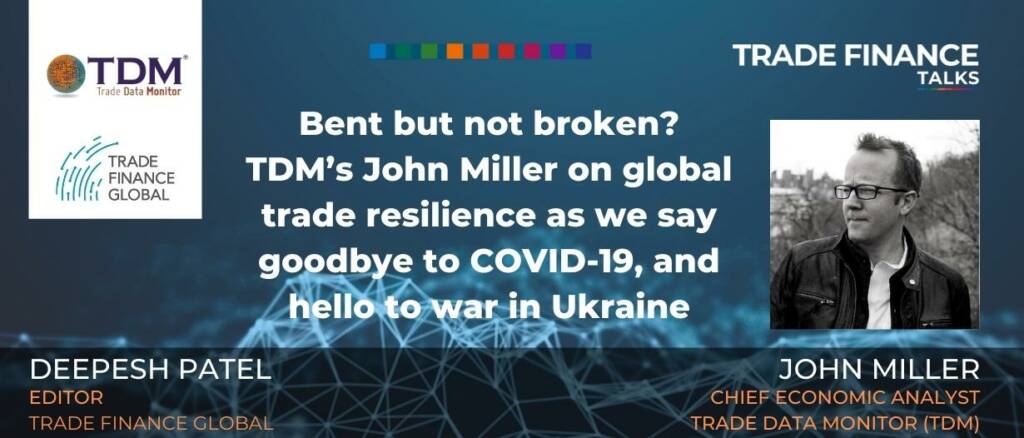In our latest podcast, TFG’s Deepesh Patel spoke to David Meynell to discuss the new rules for digital trade transactions.
In our latest podcast, TFG’s Deepesh Patel spoke to ITFA’s Silja Calac & Jean-Maurice Elkouby of ING about taking on Europe’s credit risk insurance rules
In our latest podcast, Veridapt’s Sean Birrell and Rod Hutchinson talks about how a revolution in stockpile and supply chain monitoring can transform trade finance
In our latest podcast, TFG’s Deepesh Patel spoke to Islamic finance guru Daud Vicary on fintech, sustainability, and other engines of growth
In our latest podcast, TFG’s Deepesh Patel spoke to Finastra’s Iain MacLennan on fintech collaboration vs competition, the challenge of digitalisation, and helping SMEs emerge from the COVID-19 pandemic
In our latest podcast, TFG’s Deepesh Patel spoke with John Miller, chief economic analyst at Trade Data Monitor (TDM), about the surprising resilience of global trade over the last two years
In our latest podcast, TFG’s Deepesh Patel spoke with Saskia Rietbroek of ACSS and Michael Byrne of IIBLP on sanctions busters, sanctions compliance, and new maritime guidance for financial institutions
EBRD’s Rudolf Putz discusses his experience delivering trade finance to emerging markets during the COVID-19 pandemic, and how EBRD is looking to a greener future.
Like many products within trade finance, trade credit insurance has endured serious volatility during the last 12-18 months, thanks to the COVID-19 pandemic.
As the trade finance industry shifts towards more digitalised ways of doing business, new niches are opening up within the market.
























